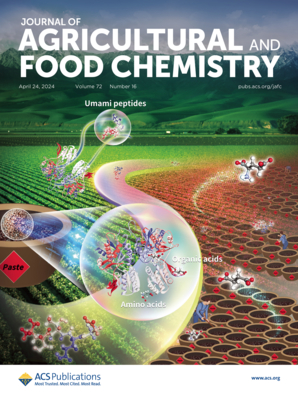氮硼在油菜营养吸收、光合作用和根际生态中的相互作用。
IF 6.2
1区 农林科学
Q1 AGRICULTURE, MULTIDISCIPLINARY
引用次数: 0
摘要
油菜对缺硼、缺氮非常敏感,但对缺硼、缺氮对油菜的互作效应尚不清楚。本研究发现,在n充足条件下,B缺乏严重损害了植物的生殖生长、光合作用和产量形成,同时也重塑了根际细菌群落。适度限氮可以缓解这些负面影响。在N充足条件下,麻孢菌和鞘单胞菌是响应B有效度的核心菌群,与B吸收和光合N利用效率(PNUE)呈正相关。微生物组成的变化与土壤pH值和有效氮有关,而氮素缺乏导致光合机构内氮分配中断导致氮素利用效率降低。平衡的氮和硼供应改善了养分吸收、微生物稳定性和种子产量,强调了综合养分管理对油菜籽可持续生产的重要性。本文章由计算机程序翻译,如有差异,请以英文原文为准。
The Interplay of Nitrogen and Boron in Rapeseed (Brassica napus L.): Implications for Nutrient Uptake, Photosynthesis, and Rhizosphere Ecology.
Rapeseed is highly sensitive to boron (B) and nitrogen (N) deficiency, yet their interaction effects on rapeseed remain poorly understood. Here, a factorial pot experiment revealed that under N-sufficient conditions, B deficiency severely impaired reproductive growth, photosynthesis, and yield formation, while also reshaping rhizosphere bacterial communities. However, moderate N limitation alleviated these negative effects. Massilia and Sphingomonas were identified as core microbiota responsive to B availability under N-sufficient conditions, correlating positively with B uptake and photosynthetic N use efficiency (PNUE). Shifts in microbial composition were linked to soil pH and available B, whereas reduced PNUE under B deficiency resulted from disrupted N allocation within the photosynthetic apparatus. Balanced N and B supply improved nutrient uptake, microbial stability, and seed yield, underscoring the importance of integrated nutrient management in sustainable rapeseed production.
求助全文
通过发布文献求助,成功后即可免费获取论文全文。
去求助
来源期刊
CiteScore
9.90
自引率
8.20%
发文量
1375
审稿时长
2.3 months
期刊介绍:
The Journal of Agricultural and Food Chemistry publishes high-quality, cutting edge original research representing complete studies and research advances dealing with the chemistry and biochemistry of agriculture and food. The Journal also encourages papers with chemistry and/or biochemistry as a major component combined with biological/sensory/nutritional/toxicological evaluation related to agriculture and/or food.

 求助内容:
求助内容: 应助结果提醒方式:
应助结果提醒方式:


